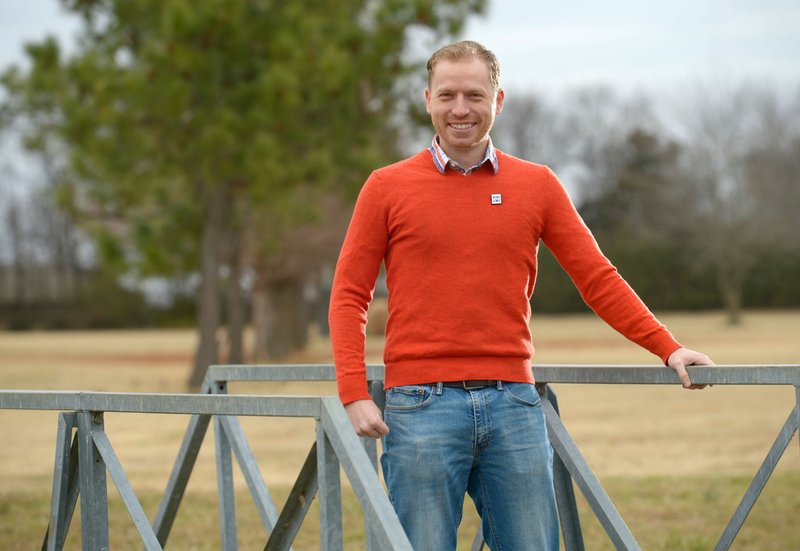FAYETTEVILLE -- A web designer and stay-at-home dad spearheaded an effort to raise millions to keep open a park Frisbee and soccer players have enjoyed for 25 years.
Will Dockery, 34, started a Facebook community, website and petition in late October to support Lewis Park, next to Asbell Elementary.
The University of Arkansas Division of Agriculture owns the 27-acre tract, which the city has leased since 1993 for soccer fields. Ultimate Frisbee players, like Dockery, use the park as well.
The lease with the city expires June 30. The university system's Board of Trustees agreed to sell the property, which has an appraised value of $4.1 million. The city's youth soccer program will move to Kessler Mountain Regional Park.
City and Division of Agriculture leaders say the property no longer serves their needs. The division plans to use money from the sale for laboratory upgrades.
Dockery wants to raise the money to buy the land and keep it from being developed.
"I know it sounds crazy. We already have a lot of parks in Fayetteville," he said. "But this is a park that means a lot to people in the neighborhoods that it represents."
The Facebook community has more than 650 supporters. About 15 people attended a Dec. 14 meeting at the library to kick off the initiative. Group members set a course to raise awareness, gain support from nonprofit groups and big-money stakeholders and reach out to city, university and Division of Agriculture officials.
"We can't just sit back and wait for everything to fall into our laps," Dockery said. "We will have to be proactive in going out and saving the park. We'll need people's help to do that."
An offer could be accepted at any point, although sale would be subject to the lease, said Mary Hightower, spokeswoman with the Division of Agriculture. The division would be happy to entertain offers from any group, she said. But it can't afford to wait.
"The bottom line is we do need to sell this," Hightower said. "We can't hold the property for one recreational group or community at the expense of our obligation to serve the entire state. As the land grant research and extension arm, we have to keep the broader picture in mind."
The city's administration has not expressed an interest in buying the property. With soccer moved to the regional park, it wouldn't make much practical or financial sense, Chief Financial Officer Paul Becker said. The City Council has already approved the budget for next year and dedicated reserve money for other purposes.
Council members Mark Kinion and Kyle Smith attended that first meeting at the library. Both supported the effort.
Kinion encouraged interaction between the community and university officials. Plus, if the property is sold, the public can still weigh in on how it gets rezoned, he said.
Smith said losing the green space at Lewis would hurt the neighborhood.
"I would love for the city to be able to maintain it as a park, but it's clear there's not $4 million in the budget for that kind of permanent acquisition," he said. "I hope the university's Division of Agriculture can take its time with the sale and work with the community in their efforts to preserve this space in the heart of the city."
The part of town where Lewis Park is, northwest of the university campus, suffers from a lack of park land, Dockery said. It would probably cost more money to build a new park than it would to preserve one that's already there, he said.
"When it comes down to it, I'll be able to play ultimate wherever I'm able to drive," Dockery said. "I have the material wealth I've been blessed with to go play other places. Some of the other people who live over there, they won't have a park when all is said and done."
NW News on 01/01/2018

